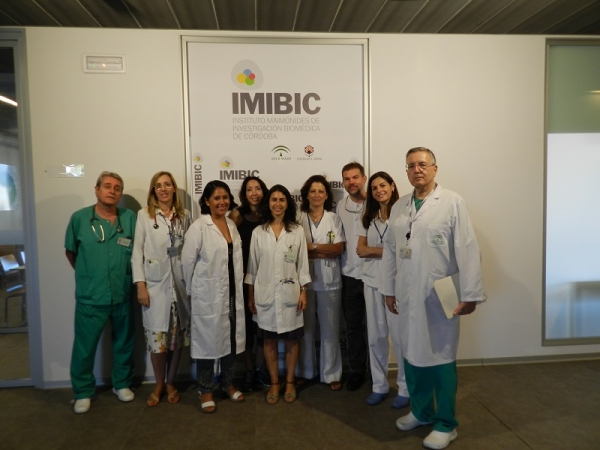Alpha-mannosidosis is classified as an extremely rare hereditary disease affecting around one in every 500,000 people. Due to a metabolism error produced by an enzyme deficiency (the enzyme being alpha-mannosidase), an inability to break down certain carbohydrates occurs. As a consequence, a progressive psychomotor delay, deafness, skeletal abnormalities and changes to the immune system occur. Though seriousness varies and depends on several factors, patients seldom live past 35.
An international study, in which the University of Cordoba and the Maimonides Biomedical Research Institute of Cordoba are participating, assessed the effectiveness of a new treatment that slows down the progression of this disease at early stages, when progression is mild to moderate. This replacement therapy uses velmanase alfa, a drug whose function is to substitute for the patient’s enzyme deficiency. “If this enzyme acts, there would be less mannose-rich oligosaccharide build-up in the lysosome, which is the culprit for the disease’s symptoms appearing in all organs,” explains Mercedes Gil-Campos, the study’s leader in Spain and member of the Ciberobn research network.
Specifically, the project centers on the effects of the therapy on patient motor proficiency by means of using the Bruininks-Oseretsky test, an objective and standardized test assessing motor proficiency on a scale. According to the data obtained, an improvement of up to 13% was observed in people who received the new treatment over two years of study. The results were nonetheless quite a bit more positive with pediatric patients. “The substitute enzyme seems to be effective if the disease has not affected the organs too much yet, therefore, diagnosis must be early in order to get the best results”, explains the researcher. To do so, a panel of experts has been set up to work on developing two algorithms focused on swiftly diagnosing the disease in patients under and over ten years of age, as their symptomatology tends to differ.
The international team that performed this study, and that has been researching this new therapy for years, is still waiting for more results about the effects of this drug, and will continue working for the next few years on another follow-up study to understand the natural development of the disease in treated and untreated patients. Nevertheless, as researcher Mercedes Gil-Campos points out, the drug is not a definitive treatment, but rather a therapy that slows down the symptoms. “Probably, a cure depends on the future development of gene therapy, for which research funding for rare diseases and groups of professionals devoted to them will be necessary”, she adds.
References:
Phillips D., Hennermann J.B., Tylki-Szymanska A., Borgwardt L., Gil-Campos M., Guffon N., Amraoui Y., Geraci S., Ardigò D., Cattaneo F., Lund A.M. Use of the Bruininks-Oseretsky Test of Motor Proficiency (BOT-2) to Assess Efficacy of Velmanase Alfa as Enzyme Therapy for Alpha-Mannosidosis. Mol Genet Metab Rep2020 Apr 8;23:100586. doi: 10.1016/j.ymgmr.2020.100586. eCollection 2020 Jun.


